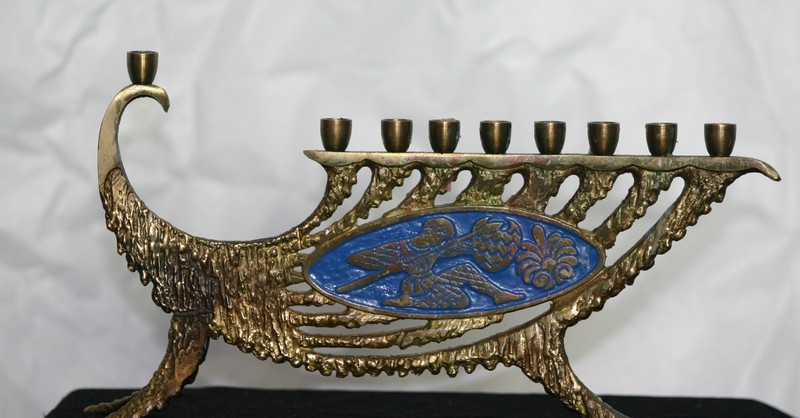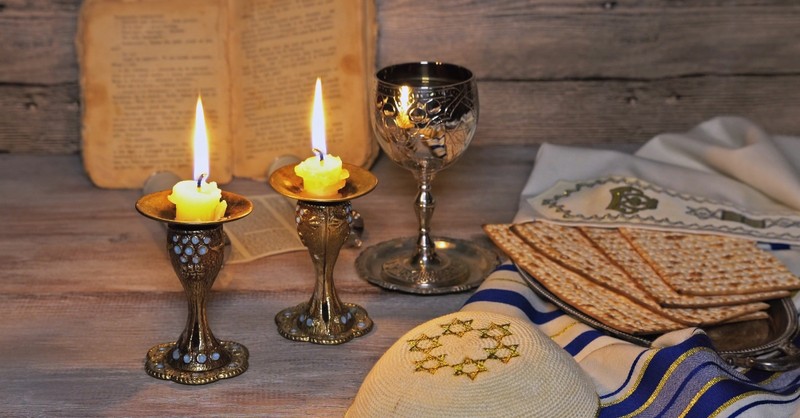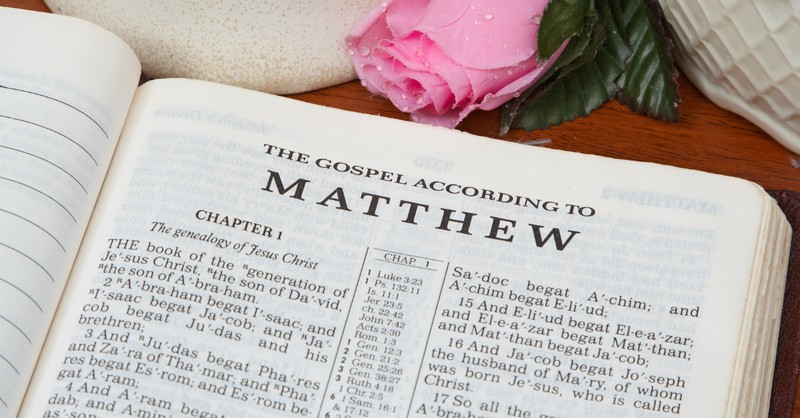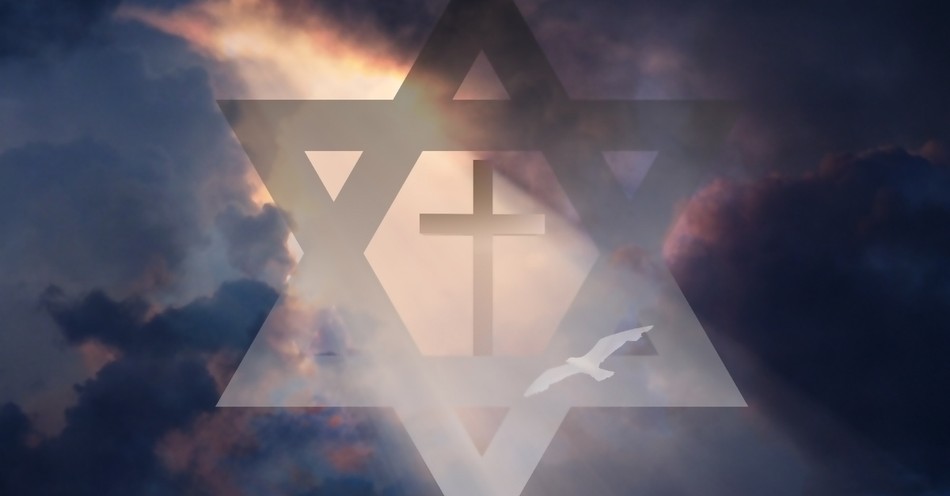Messianic Jews are a blend of the Jewish and Christian faiths. Mostly of the Jewish nationality, they keep the basic culture, traditions, and principles of Judaism. Additionally, Messianic Jews believe Jesus Christ was the Son of God and through faith in his death and resurrection, there is salvation.
Messianic Jews adhere to the teaching of the Torah, the Hebrew Bible, yet believe that the promised Messiah was Jesus Christ the Son of God.
Judaism and Messianic Jews share similar foundational truths. Both faiths are derived from God’s covenant with Abraham in Genesis 15 as well as God’s commandments given to Moses and the Israelites in the book of Leviticus. Messianic Jews continue to follow the commandments and traditions in the Jewish culture, but understand the salvation of Jesus Christ serves as an atonement, or payment for sin—not the act of observing the Jewish Holy Days.
Photo Credit: ©GettyImages/bestdesigns

What Does 'Messianic Jew' Mean?
The term messianic is related to the Messiah, Jesus Christ. Messianic Jews have accepted Jesus as the Promised Messiah from Hebrew Scripture. While Jews are still waiting for the promised Messiah to come and save all who believe, Messianic Jews believe that has already been fulfilled through the death and resurrection of Jesus Christ. Many Jews believe Jesus was a historical figure, but not the Chosen One sent to save the world from their sin.
What Is the Origin and History of the Messianic Jews?
The modern-day Messianic Jew movement began in Great Britain in the mid-1800s with groups like the Hebrew Christian Alliance and Prayer Union of Great Britain. These groups kept their Jewish traditions and mixed in Christian teachings. In 1915, the Messianic Jewish Alliance of America began in the U.S. In the 1960s and 1970s, the movement expanded with the spiritual awakening of young adults in the U.S.
In Acts 2 of the Bible, the first Jews came to a saving faith in Jesus Christ over 2,000 years ago. Jesus was Jewish and rejected by many of his own people. In Acts 2, his followers were baptized by the Holy Spirit on the day of Pentecost. At least 11 of Jesus’ original followers were present that day, and over 3,000 Jews also became believers after witnessing the fire of the Holy Spirit.
Throughout the book of Acts, followers of Christ shared the good news of God’s salvation with Jews and Gentiles (non-Jews) through the Roman Empire. While many Jews persecuted the believers by claiming they were turning away from Jewish tradition and law, the Jewish Christ-followers continued to adhere to the practices and traditions such as circumcision (Acts 15), observing Sabbath (Acts 13), and practicing the Nazarite Vow (Numbers 6, Acts 21).
Photo Credit: ©GettyImages/adapix

The Main Religious Text of Messianic Judaism
The Holy Bible is the main religious text for Messianic Jews. They follow the teachings of the Torah (Old Testament) while also holding the New Covenant (New Testament) as God’s Truth. They believe Old Testament prophesies about the coming Messiah were fulfilled in the New Testament with the birth, death, and resurrection of Jesus Christ.
Messianic Jews believe that all of Scripture in the Bible is inerrant and God-breathed, as the Apostle Paul states in 2 Timothy 3:16 CSB, “All scripture is inspired by God and is profitable for teaching, for rebuking, for correcting, for training in righteousness...”
4 Core Beliefs of Messianic Jews
1. Bible - Messianic Jews believe the Bible is God’s Holy Word and follow the Old and New Testament. The Old Testament serves as a history of the Jewish nation, God’s covenant with Abraham, and the commandments given to Moses. The New Testament fulfills the Old Testament through the coming of Jesus Christ, the Promised Messiah and God’s Son.
2. Jesus Christ - Messianic Jews believe that Jesus Christ is the Promised Messiah prophesied in the Old Testament. He is referred to in Hebrew as Yeshua and regarded as the way of salvation for all who believe in his death and resurrection. They believe that Jesus’ death was payment for the sins of all. (Acts 2)
3. Trinity - Most Messianic Jews believe in the Trinity as God in three parts. God the Father, God the Son, and God the Holy Spirit are all displayed in the New Testament Scriptures through the Gospels (the first four books) and the book of Acts.
4. Sin - Messianic Jews acknowledge that sin is any behavior that is against the teachings of the Bible. Sin can only be forgiven through faith in the death and resurrection of Jesus Christ. (2 Corinthians 5)
Photo Credit: ©SparrowStock

5 Messianic Jewish Practices
1. Baptism - Messianic Jews practice baptism, immersion in water, just as John the Baptist practiced in the New Testament. This is a representation of a believer’s acceptance and confession that Jesus is the Messiah and the Son of God. (Acts 2:38)
2. Circumcision - Just as Abraham was told by God that all who believe should be circumcised, Messianic Jews also adhere to this teaching. This is a part of fulfilling the covenant God made with Abraham. (Genesis 17)
3. Sabbath - Many Messianic Jews follow the Jewish traditions of observing the Sabbath on Friday night through Saturday night. Sabbath was commanded by God and written as a part of the Ten Commandments given to Moses on Mt. Sinai. The people are to set aside one day per week to cease from work as God rested on the seventh day of the Creation of the world. (Exodus 31:12-17)
4. Holidays - Messianic Jews recognize Jewish Holy Days such as Passover, Sukkot, Yom Kippur, and Rosh Hashanah. These celebrations were commanded by God and given to Moses and the Israelites in the wilderness. They serve to remember God, His provision, and express understanding that everything belongs to God. The Messianic Jews follow the holidays in the lens of Jesus Christ fulfilling the purpose behind the observance sacrifice and atonement of sin. (Leviticus 23)
5. Dietary Laws - Some Messianic Jews follow the kosher diet which are specific food restrictions God gave the Israelites in the Old Testament to keep their bodies holy, pure, and set apart as God’s people. Messianic Jews may follow these restrictions, but also understand the death and resurrection of Christ cleanses and purifies you from sin. (Leviticus 11)
Photo Credit: ©GettyImages/Halfpoint

How Widespread Worldwide Is Messianic Judaism?
Messianic Judaism has congregations throughout the world. Each congregation is diverse in how they observe Jewish traditions, laws, and worship. Messianic Jew numbers exceed 350,000 worldwide. In the United States, there are estimated to be around 250,000 members and 100,000 in Israel.
Organizations like “Jews for Jesus” evangelize to the Jewish community. It began in 1973 by a Christian Jewish convert and ordained Baptist minister, Moishe Rosen. The non-profit organization uses street missionaries and pamphlets to share the gospel. Their headquarters in San Francisco bears the quote “Established in 32 AD, give or take a year” indicating that the Messianic Jew faith began around the death, resurrection, and ascension of Christ.
Similarities and Differences between the Christian and Messianic Jewish Faith Today
While Judaism and Christianity have many differences in beliefs and practices, Messianic Jews share many similarities with Christians. Their common core belief is the acknowledgment of Jesus Christ as the Promised Messiah of the Old Testament.
Both believe that Jesus is the Son of God who came to save the sins of humanity by dying and rising again. Many Messianic Jews and Christians participate in some form of baptism, especially by immersion as a believer is old enough to understand the sacrifice made by Jesus on the cross.
Both faiths study the scriptures of the Old and New Testament, believing that the teachings of Christ in the New Testament fulfill God’s law of the Old Testament. They also both believe the Trinity as God the Father, God the Son, and God the Holy Spirit are of the same being.
Differences between Messianic Jews and Christianity lie in the traditions of the Jewish faith.
Many Messianic Jews observe the Jewish holidays of Passover and Hanukkah and not the Christian holidays of Easter and Christmas.
Some Messianic Jews also observe the dietary commands given to the Israelites in the Old Testament as to spiritually cleanse the body through physically cleansing it through avoiding certain meat, seafood, and dairy. Christians do not keep dietary guidelines as a part of their faith.
Messianic Jews observe the Sabbath on Friday night to Saturday night as Christians mostly refer to their Sabbath day as Sunday when they attend church services.
Photo Credit: ©GettyImages/photovs

Key Takeaways about Messianic Judaism
Messianic Judaism is the faith of Jewish followers of Christ in the New Testament.
The book of Acts in the Bible depicts the conversion of many Jewish people through the fulfillment of Jesus’ command in Matthew 28:19 CSB “Go, therefore, and make disciples of all nations, baptizing them in the name of the Father and of the Son and of the Holy Spirit.”
The apostles (those who were taught by and followed Christ) taught fellow Jews how Jesus’ life, death, and resurrection fulfilled Old Testament prophecy.
While many Jewish groups have strongly opposed the Messianic Jew faith, often considering them idol worshippers, Messianic Jews continue to draw many converts as they carry out the teachings of Christ as well as remain rooted in the origins of the Jewish faith.
Their blend of Jewish tradition and Christian practices make them as diverse as many denominations within the Christian faith.
Photo Credit: ©GettyImages/dvest





